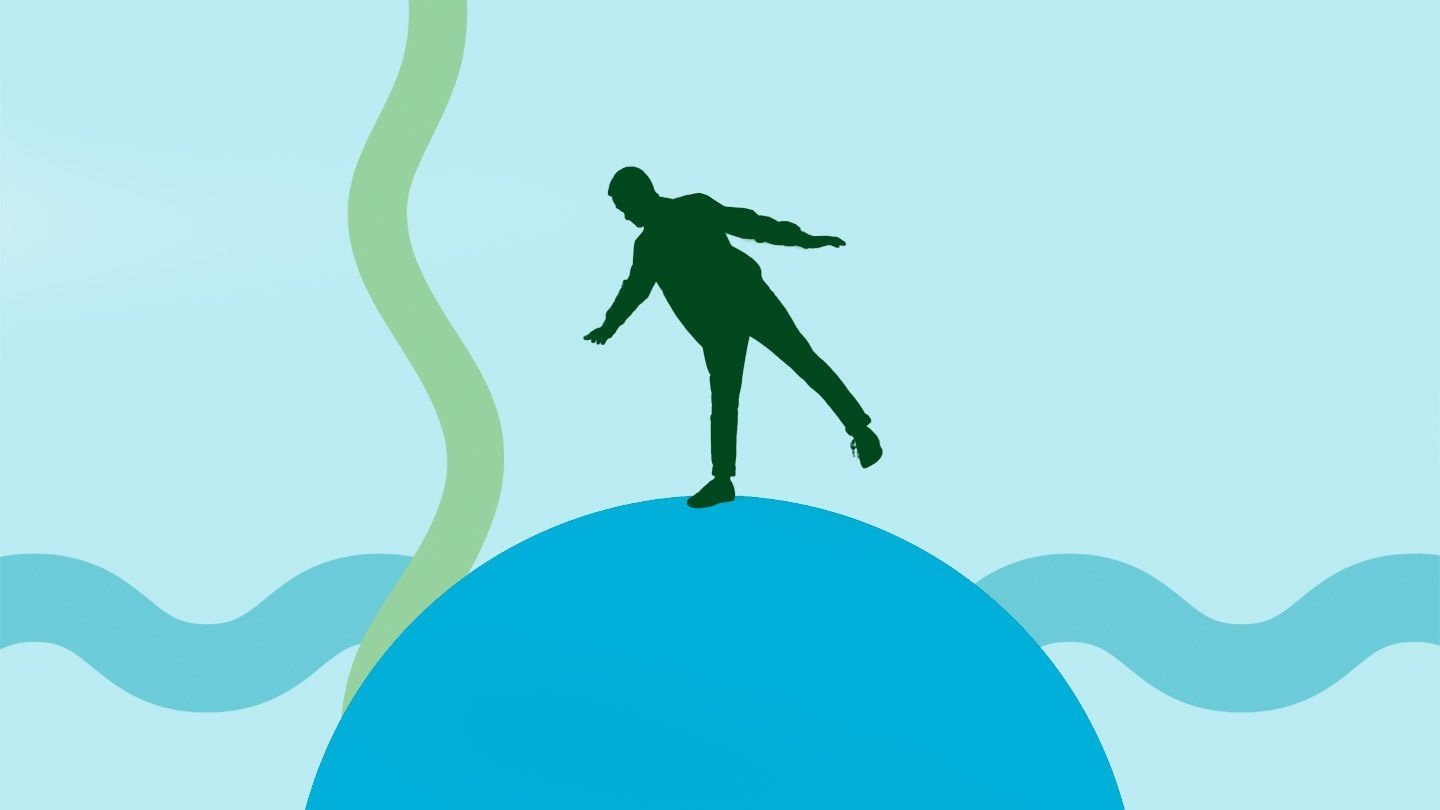
Nature vs Nurture
A healthy lifestyle can take you only so far. Research shows that eating right, exercising often, and otherwise adopting healthy habits can extend the lifespan—to about 80, or even 90 years of age. After that, genetics are likely the most significant factor. Do you have any centenarians in your family? Read the NYT article to find out more about longevity influences.

Finding Time to Grieve
What we’re reading: “Memorial Days,” by Pulitzer Prize-winning author Geraldine Brooks. A spare tale of marriage and mourning, Brooks’s memoir explores the trauma of her husband’s sudden death at age 60 (he was Tony Horowitz, also a renowned literary figure), and the all-encompassing loss she experienced after 35 years of marriage. The chapters alternate between the immediate, frenzied aftermath of Horowitz’s death, and three years hence, when Brooks decamps to a remote corner of her native Australia to finally find the time, and space, to fully grieve. Read the Wall Street Journal’s review of this moving narrative of sorrow and remembrance.

Fighting Ageism at Any Age
Elderspeak–talking in a condescending or other demeaning manner to older adults–is one of the many prevalent ways ageism is manifested. And sometimes it happens well before senior citizenship. As NPR notes, pushing back against ageist comments in all forms, including those directed internally, is one key to a longer, healthier life.

A Moving Movie About Age-Related Dementia
The documentary film, “Keys Bags Names Words” (the things Alzheimer’s patients lose most often), examines the disease from multiple perspectives, including exploring positive approaches to caring for, and connecting with, those affected. Visit the film’s website to find out about upcoming screenings, or to schedule one of your own.

The Vitalizing Effects of Volunteering
In addition to serving your community, new research found that volunteering can serve you, as well! Even giving your time for just one hour a week can contribute to a longer, healthier life. Experts noted that volunteering supports physical, social, and psychological benefits, resulting in a positive impact on biological aging. Follow the link below to Health.com to read more about the benefits of helping others.

Can Driving a Taxi Tax Your Brain?
In a word: Yes! It turns out driving a taxi can tax your brain—but in a good way. Recent research found that U.S. taxi (and ambulance) drivers had the lowest incidence of death due to Alzheimer’s disease among the more than 400 occupations included in the study. Researchers attributed this to drivers’ use of complex cognitive skills to navigate trips (most participants worked prior to today’s ubiquitous reliance on GPS). Whether solving spatial challenges, or engaging in other decision-based activities such as chess, stimulating your brain can be key to brain health.
Follow the link below to The Wall Street Journal to learn more.

Brain Health: The Benefits of Learning How to Play Music
For many kids, learning how to play an instrument is a key part of their formative years. Not only does it help with brain development, it also helps elevate moods and reduce stress. For older adults who pick up an instrument, the list of benefits expands, including the possibility of reduced risk of dementia. Read more at The Atlantic.

The Long and Winding Road
Might we take a different route if we knew we’d live to be 100? According to the Pew Research Center, nearly half a million Americans are expected to live to at least 100 years of age by 2050—that’s quadruple the current number of centenarians. Laura Carstensen, founder of Stanford University’s Center on Longevity, suggests we need to rethink our traditional pathways to optimize this new-found longevity. For example, she suggests making childhood longer, or working less while rearing children and more later in life instead of retiring. Read on for more innovative ideas.

Spotlight on: “The Later Daters”
Michelle Obama’s new docuseries follows six older adults, ages 56 to 71, as they wade back into the dating pool. Helping them stay afloat are their children, close friends, and a relationship expert. Does dating get easier as one ages? No, but there can be some unexpected rewards. Streaming now on Netflix.

You Know “the talk” You’re Dreading? It’s Time.
According to a study by VITAS Healthcare, only 22% of the U.S. population has an end-of-life plan in place. While American culture treats death as a taboo subject, it’s an inevitability for all of us. Discussing and documenting decisions around dying can strengthen familial relationships, and is a gift to loved ones. Read about how to take the first steps in initiating this important talk.

Inside Ted Danson’s New Netflix Series
Cheers to Danson & Co. for creating a show that doesn't shy away from the topic of aging. “A Man on the Inside” is a comedy, but one that also highlights some weighty themes, including the fact that life doesn’t stop just because you get older. Streaming now.

Words Matter
Attendees at the annual Gerontological Society of America (GSA) conference took a deep dive into how words can propagate ageism and bolster negative stereotypes of older adults. Actions included analyzing 62 million social media posts on the platform X for ageist terminology, and examining how older characters are described in children’s books. One notable, concrete effort was petitioning two of the world’s most respected dictionaries—Oxford English Dictionary and Merriam Webster—to update their definitions of ageism to encompass a broader description of who is impacted. Results TBD.

What We’re Reading this Week: “The Second Fifty: Answers to the 7 Big Questions of Midlife and Beyond”
Author Debra Whitman, an economist and aging expert, offers a roadmap for living a healthier and more meaningful second half of life. Two key insights:
Mind Over Matter – Yes, healthy habits are critical to longevity, but mindset has a significant impact as well. Researchers found that those with positive attitudes of aging can live more than seven years longer than cohorts with negative outlooks.
Older Workers Are a Force – More older Americans are working than ever before, and contrary to what many believe, studies show they are a benefit to the economy and to their employers, activating both productivity and innovation.

The Keys to Aging Well? Self Care and Attitude
In a recent survey by the New York Times, more than 3,100 participants shared how their form of self care has evolved as they’ve aged. Focusing on six older Americans and their lifestyles, the Times delves into how aging impacts individual views on aging and staying vibrant.

Rebranding the Senior Center
Think senior centers are all about bingo, bland food, and boring TV? Well, think again. Galvanized by a demographic evolution—specifically, a large swath of adults living longer, more active lives, today’s senior centers are dropping the word “senior” from their names, and offering pickleball, tech labs, speed dating, and more.

Getting a Leg up on Aging
It all begins with an idea. Maybe you want to launch a business. Maybe you want to turn a hobby into something more. Or maybe you have a creative project to share with the world. Whatever it is, the way you tell your story online can make all the difference.
Don’t worry about sounding professional. Sound like you. There are over 1.5 billion websites out there, but your story is what’s going to separate this one from the rest. If you read the words back and don’t hear your own voice in your head, that’s a good sign you still have more work to do.
Be clear, be confident and don’t overthink it. The beauty of your story is that it’s going to continue to evolve and your site can evolve with it. Your goal should be to make it feel right for right now. Later will take care of itself. It always does.

It’s Not Just the Quantity, It’s the Quality
A recent study reveals that while life expectancy has increased–thanks in large part to medical advances–it is reaching its limit. Researchers suggest shifting the focus from lifespan to healthspan, with a sharper focus on the biology of aging.

Caring About Caregiving
Health care providers, and other field professionals, recommend five books on caregiving—for the many who find themselves caring for family members, yet have no medical training or experience.

Take a Vacation from Aging? Not Really.
According to new research, travel can provide numerous health benefits, including alleviating chronic stress, and boosting physical exertion and mental engagement. And we’re not talking about time travel! Experts posit that engaging both mind and body is critical to healthy aging and, potentially, delaying age-related decline.

Advance Planning Is Critical in the Path to Aging Well
“By failing to prepare, you are preparing to fail.”
Ben Franklin
According to the New York Times article, “Going Solo: How to Plan for Retirement When You’re on Your Own,” about 60 percent of solo agers— older people without dependable assistance from adult children or other family—have not developed a plan for addressing financial, medical, and estate issues should their health falter. While it can be difficult and emotionally fraught, it is critical to outline a detailed roadmap for decision-making and handling affairs, for so many reasons, including peace of mind. And, this is true for all older folks, not just those living alone. As another quotable icon (Winston Churchill) said, “Let our advance worrying become advance thinking and planning.”
